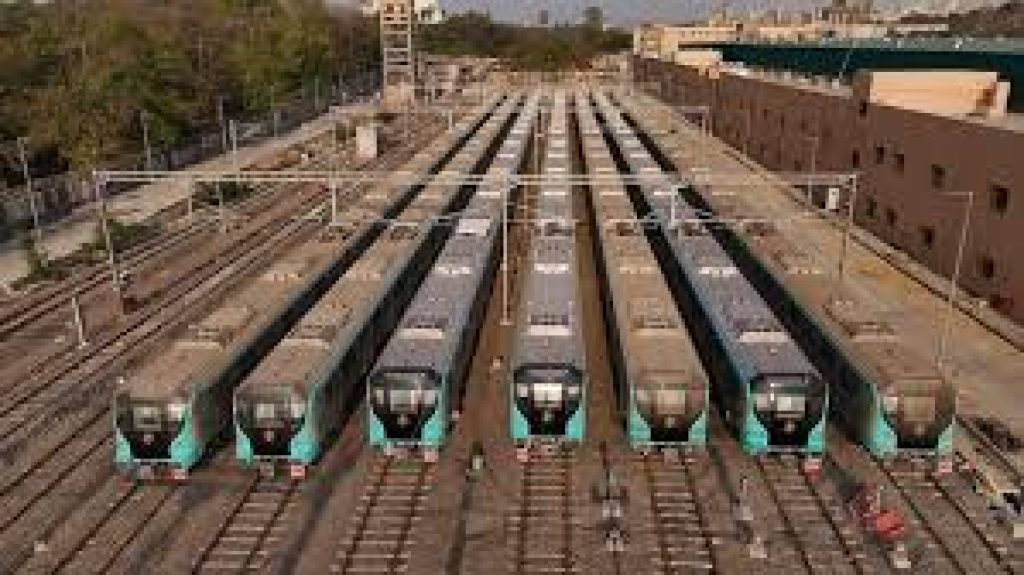Mumbai, India’s bustling financial capital, is set to witness a significant transformation in its urban transit system with the inauguration of its first underground metro, the Aqua Line. Scheduled to begin operations on July 24, 2024, this long-awaited infrastructure project promises to revolutionize travel across Mumbai’s congested streets, offering a faster, more efficient alternative to surface transportation.
Project Overview and Timeline
The Aqua Line Route
The Aqua Line, officially known as Mumbai Metro 3, will span a total distance of 33.5 kilometers, connecting Aarey Colony in the north to Cuffe Parade in the south. This extensive route will feature 27 stations, strategically placed to serve key areas of the city.
Phased Implementation
The project’s first phase, commencing on July 24, will operate between SEEPZ (Santacruz Electronics Export Processing Zone) and Bandra Kurla Complex (BKC). This initial stretch marks a significant milestone in the project’s development and will provide immediate relief to commuters in these areas.
Completion Timeline
While the entire project was initially slated for completion by September 2024, revised estimates now project full operationality by the end of December 2024. This slight delay underscores the complex nature of underground metro construction in a densely populated urban environment.
Key Features of the Aqua Line
Station Network
The Aqua Line boasts an impressive array of stations, including:
- Cuffe Parade
- Vidhan Bhavan
- Churchgate
- Hutatma Chowk
- CST Metro
- Kalbadevi
- Girgaon
- Grant Road
- Mumbai Central Metro
- Mahalaxmi
- Science Museum
- Acharya Atre Chowk
- Worli
- Siddhivinayak
- Dadar
- Shitladevi
- Dharavi
- BKC
- Vidyanagari
- Santacruz
- Domestic Airport
- Sahar Road
- International Airport
- Marol Naka
- MIDC
- SEEPZ
- Aarey Depot
This comprehensive network ensures connectivity to major residential, commercial, and transportation hubs across the city.
Improved Travel Times
One of the most significant benefits of the Aqua Line will be the drastic reduction in travel times. For instance, the journey from Cuffe Parade to the Airport will be shortened from 100 minutes to just 50 minutes, effectively halving the current travel time.
Historical Significance
The project also holds historical importance. The Colaba station, which was originally commissioned in 1873 and closed in 1930, will be restored to the rail network after an 85-year hiatus, reconnecting this historic area to Mumbai’s modern transit system.
Passenger Comfort and Safety
Enhanced Accessibility
The Aqua Line places a strong emphasis on passenger comfort and accessibility. Key features include:
- Escalators and elevators for easy station access
- Secured platforms with closed train doors
- Comprehensive CCTV coverage
- Entry points available from both sides of roads, eliminating the need for foot overbridges or road crossings
These features will significantly improve the travel experience, especially for senior citizens, women, and patients.
Safety Measures
Safety is paramount in the design of the Aqua Line. Platform screen doors will be installed to ensure passenger safety during boarding and alighting, substantially reducing the risk of accidents.
Project Progress and Completion Status
As of the latest updates, the Aqua Line project has made significant strides towards completion:
- Overall project completion: 98%
- Civil works: 99.2% complete
- Station construction: 97% complete
- Tunneling works: 100% complete
- Systems work: 77.6% complete
- Depot civil works: 99.8% complete
- Mainline track works: 87% complete
These figures demonstrate the advanced stage of the project, with most major construction and infrastructure work nearing completion.
Political and Economic Significance
The launch of the Aqua Line has garnered attention from political figures, highlighting its importance to Mumbai’s development. Bharatiya Janata Party’s general secretary Vinod Tawde emphasized the project’s alignment with Prime Minister Narendra Modi’s commitment to improving life for Mumbaikars.
From an economic perspective, the project’s revised cost stands at ₹37,275.50 crore, representing a significant investment in Mumbai’s infrastructure and future economic growth.
